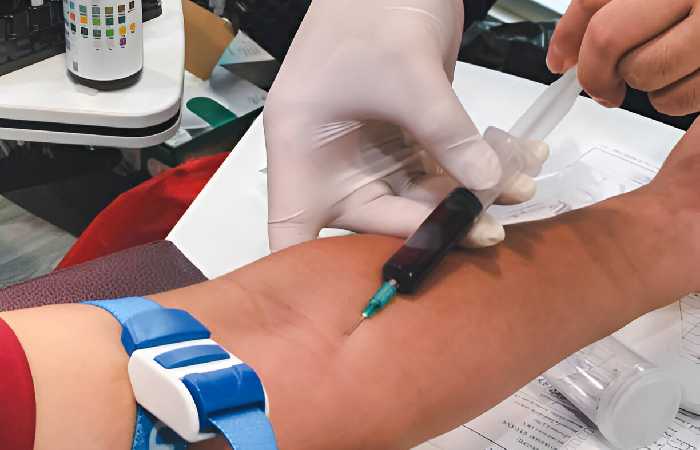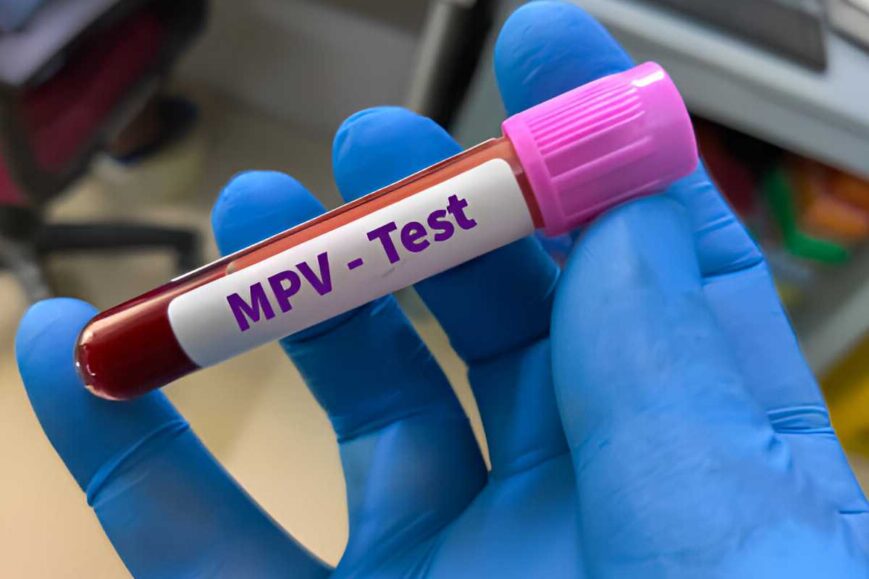MPV blood test refers to a mean platelet volume test performed to measure the size of your platelets. Doctors can identify a person’s health conditions, such as cardiovascular disease, anemia, and some cancers, by performing an MPV test and other tests.
Blood comprises many types of cells, including platelets, red blood cells, white blood cells, red and platelets.
Doctors usually suggest performing these blood tests on their patients to examine these cells for signs of health issues. Knowing the results can aid you in understanding your health condition and if you need treatment for any particular disorder.
Remember that many factors can affect the MPV level, and a doctor must understand the results in the context of other findings.
Details about MPV Blood Test
CBC test (Complete Blood Picture) is the most common test doctors recommend to know the health condition of their patients. CBC test refers to a series of tests examining particular kinds of cells in your blood.
MPV test is one of the tests performed among the series of tests included in the CBC test. An MPV test is done to measure the average size of your platelets, and it is closely related to the platelet count test, which measures the platelet count in your blood.
Platelets remain tiny blood cells that play an essential role in blood clotting. For instance, platelets stick together to stop the bleeding when you cut yourself. In some cases, platelet abnormalities can indicate a bleeding disorder or other health issues.
A high or low MPV should be interpreted within the context of other CBC results, like platelet count. In most cases, using your MPV test results, the doctor will decide whether to do or not to do further testing, such as a bone marrow biopsy.
Certain things can affect your MPV, such as following a vigorous exercise routine or living at a high altitude. Review your test results with your doctor to get the complete picture.
Testing process

Testing your MPV is an easy process. Your primary care physician usually does it during your annual checkup.
A phlebotomist is a person who is exceptionally trained to do all the blood tests. He will wrap a strap around your arm to engorge your veins. Afterward, they insert a thin needle into your veins and draw blood into the test tubes. You will feel slight pain but may have some tendering and bruising in the coming days.
What is a High MPV?
A high MPV means that your platelets are more significant than average. It is sometimes a sign that you’re producing more platelets.
Platelets remain formed in the bone marrow and then released into the bloodstream. More giant platelets are usually young and more freshly released from the bone marrow. Minor platelets are more probable to remain in circulation for some days.
A person with a low platelet count and a high MPV level indicates that the bone marrow is fast-producing platelets. It may be because the older platelets are being ruined, so the bone marrow remains trying to compensate.
Cancer
Increased MPV is related to platelet activation, which can occur when platelets encounter tumor byproducts. Still, a high MPV doesn’t mean that you have cancer. Your doctor suggests some additional testing if you have a family history of cancer or other risk factors to ensure there remain no further signs.
If you do have cancer, a high MPV may be a cautionary sign, depending on the results of other blood tests. Platelets can help cancer spread to different parts of the body besides promoting the growth of tumors.
A high MPV refers to increased platelet production, which is related to reduced survival rates in several types of cancer, including:
- Lung cancer
- Ovarian cancer
- Endometrial cancer
- Colon cancer
- Kidney cancer
- Stomach cancer
- Pancreatic cancer
- Breast cancer
Remember that MPV only refers to the size of your platelets, not their actual number. Your MPV on its own doesn’t mean you have anything.
If you’re worried about cancer, some of the warning signs can help you determine your health condition.
- Weight gain or loss for no reason
- Appetite changes
- Breast changes
- Changes in bowel habits
- Thickening skin or else lump on or under your skin
- Cough or hoarseness that doesn’t go away
- Difficult or painful urination
- Skin changes
- Trouble swallowing
- Abdominal pain
- Unexplained night sweats
- Rare bleeding or discharge in urine or stool
- Feeling weak or very tired
Further causes
According to your other CBC results, high MPV levels can be an indicator of quite a few conditions, such as:
- Heart disease
- Diabetes
- Hyperthyroidism
- Deficiency of vitamin D
- High blood pressure
- Atrial fibrillation
- Stroke
What is a Low MPV?
A low MPV means that your platelets are tinier than average. Minor platelets tend to be older, so a low MPV might mean your bone marrow isn’t producing adequate new ones. Yet again, a tiny MPV alone doesn’t refer to anything.
According to your other CBC results, a low MPV could specify:
- Cytotoxic medications, which are used in chemotherapy
- Inflammatory bowel illness, including Crohn’s disease or ulcerative colitis
- Aplastic anemia
Conclusion
An MPV test measures the standard size of your platelets. Even though thoroughly related, it’s diverse from your platelet count, and you can opt for a combination of a high MPV besides a low platelet count or a low MPV besides a high platelet count.
A high or low MPV may be entirely ordinary, depending on your lifestyle. As per the other results from your CBC, it can signal your doctor to do extra testing to rule out any possible underlying conditions.


